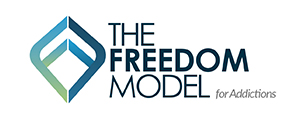Baldwin Research:
Addiction & Treatment
Research
Is Addiction Like Cancer?
Then there is cancer and those that contend that alcoholism and addiction is just like cancer. Only someone who has not had cancer could espouse such a repugnant idea. The CDC reports that cancer fatalities in 2011 were 576,691 and are second only to heart disease. Thus cancer deaths are 21 times greater than either alcoholism or addiction annually. Comparing alcoholism and addiction to cancer is like comparing an apple to the planet earth; it simply does not equate. They are, quite literally, a world apart.
Consider that with alcoholism and addiction the prescription is to attend self-help one hour meetings once or twice a day. Often the prescription for cancer is radiation treatment that may kill the cancerous cells, but may also kill the healthy cells. Another common treatment for cancer is the surgical removal of the cancerous cells (tumor(s)) from the sufferers’ bodies. Sometimes these surgical procedures can be catastrophic, leaving cancer suffers with missing parts of their bodies, such as their tongues, bowels, intestines, kidneys, parts of their lungs or livers, and so on.
People who get cancer do not choose to get it. For example, cancer sufferers never say, "I dabble in cancer" or "I only have cancer socially" or "If it gets too bad, I’ll quit (my cancer). " Cancer sufferers rarely, if ever, have any choices in the matter. They may have a genetic predisposition for contracting cancer and/or they may have behavior(s), such as smoking, that result in the production of cancerous cells, but, everyone that smokes does not get cancer. However, it is accurate to observe that everyone who does smoke has a higher probability of developing cancer than those who don’t smoke. That said, smoking is not a disease; it’s a choice — the resulting cancer is a disease.
Currently, cancer is beyond cancer sufferers’ self-control, but alcoholism and addiction is well within the control of users. Alcoholism and addictions are cognitively chosen behaviors, and as such, drug and alcohol users by the millions have stopped using drugs and alcohol, permanently. If cancer was just like alcoholism and addiction and people could choose not to have cancer, then there would be no cancer. So, even the thought of alcoholism and addiction being just like cancer is an affront against the sensibilities of mankind.
It is clear that alcoholism and addiction are not "diseases," and are not just like diabetes, heart disease and cancer. Yet this travesty, believing alcoholism and addiction are just like diabetes, heart disease and cancer, pervades every nook and cranny of American society, inexplicably including such segments as the medical community, the intellectual (educational) community and the public media. The saturation of this hoax perpetrated on American culture is complete, and is perpetuated by state and federal governments, by the medical establishment, by the drug and alcohol treatment industry, entertainment industry, educational establishment, news media, and by pharmaceutical companies. Even more remarkable is that all credible research and immutable evidence refutes the disease theory of alcoholism and addiction. In a slightly modified version of St. Augustine’s famous quote: "Right is right even if only a few are saying it; wrong is wrong even if nearly everyone is saying it. " BRI researchers have, for more than two decades, studied the origin of the disease theory and the credible science that refutes the disease theory. E.M. Jellinek, an alcoholism researcher and author of The Disease Concept of Alcoholism, professed to "prove" the disease theory and turned out to be a fraud, his "proof" turned out to be a fraud and his conclusion was fraudulent. Nevertheless, state and federal governments, the medical establishment, the drug and alcohol treatment industry, the entertainment industry, the educational establishment and the news media still adhere to the fraudulent research reported by E.M. Jellinek, the fraud. What does that say about them?


